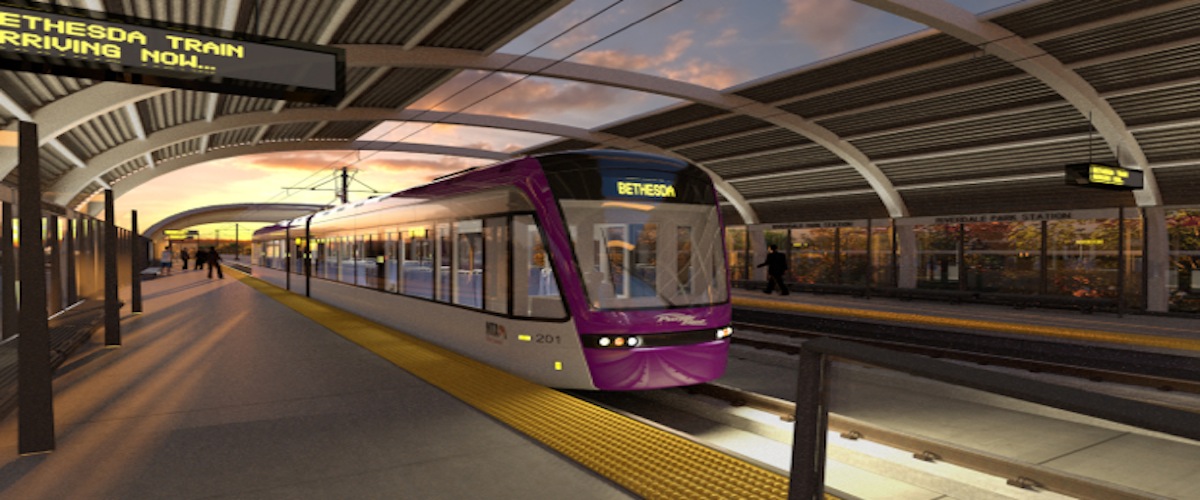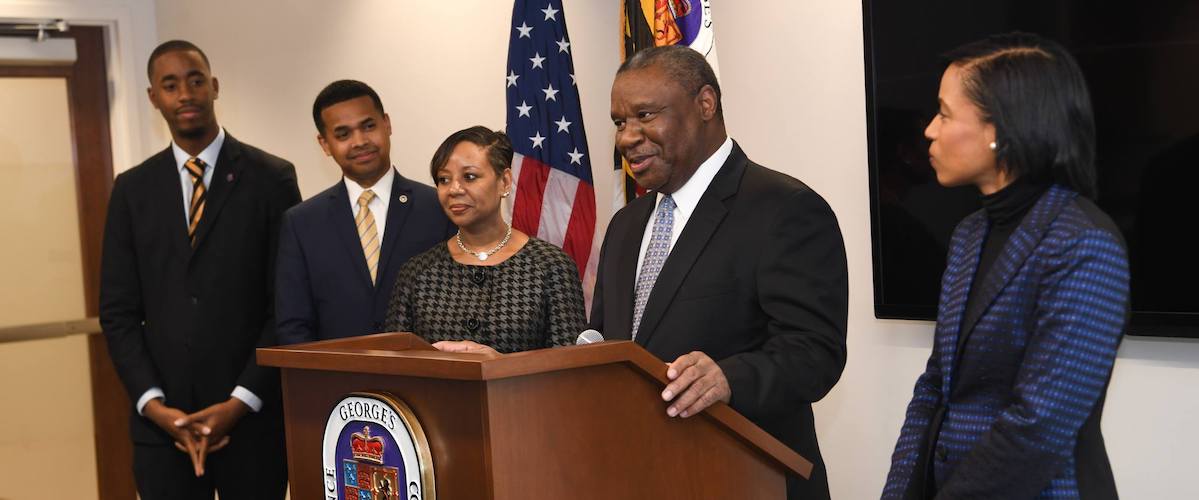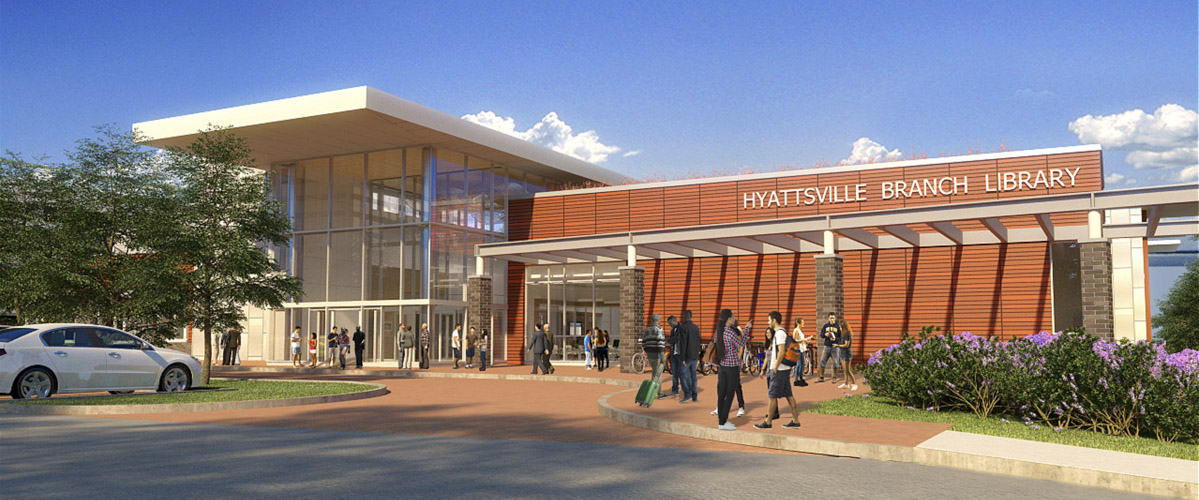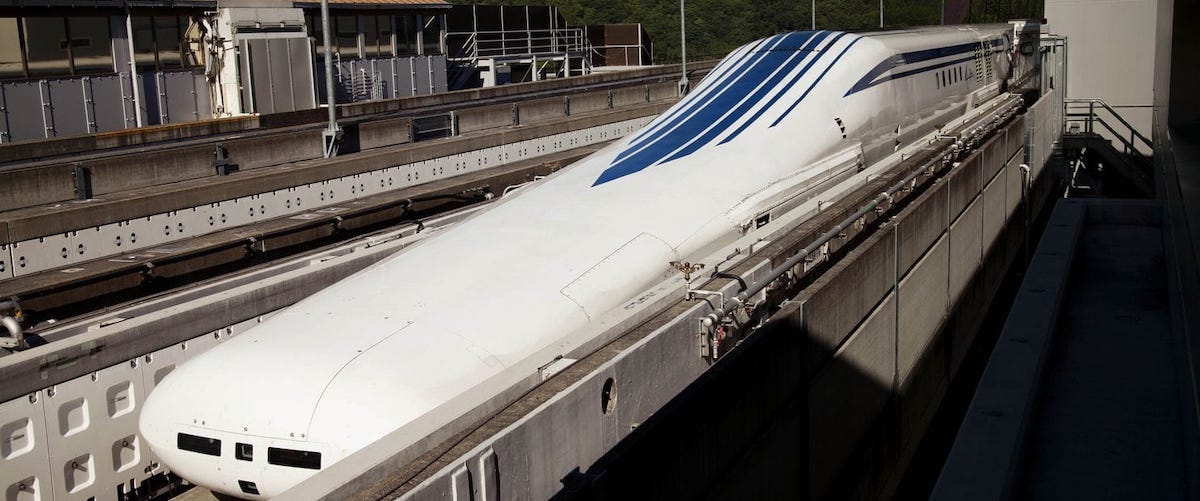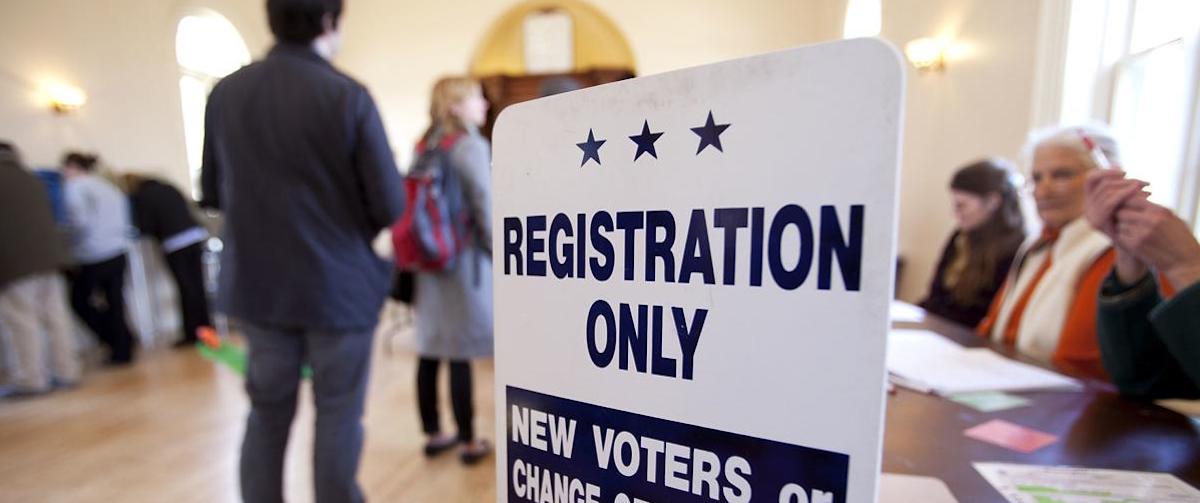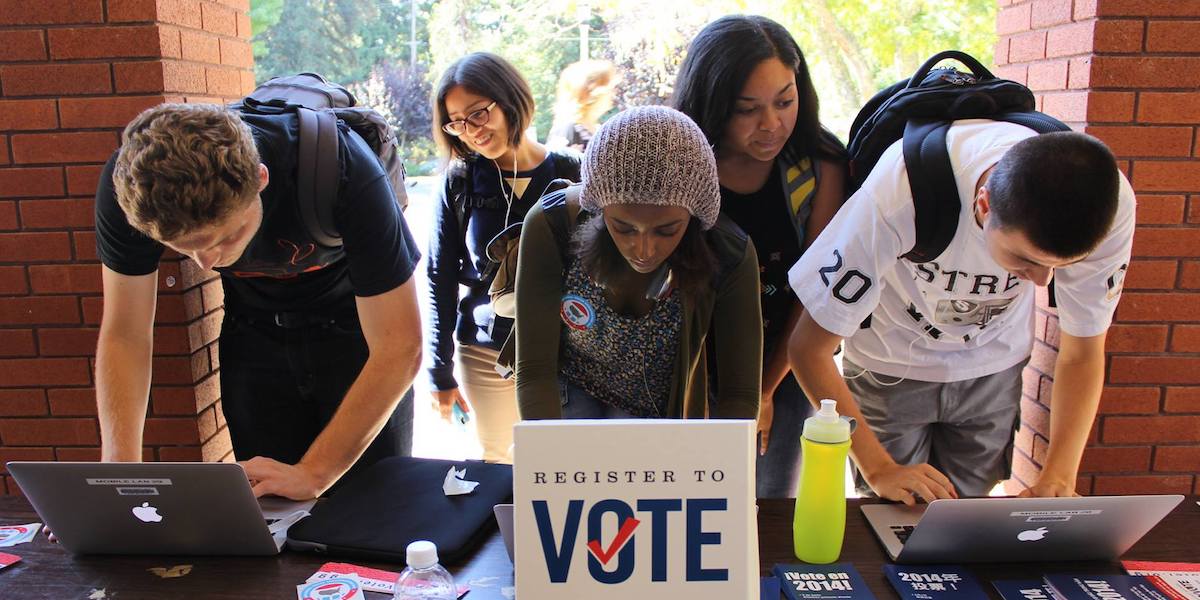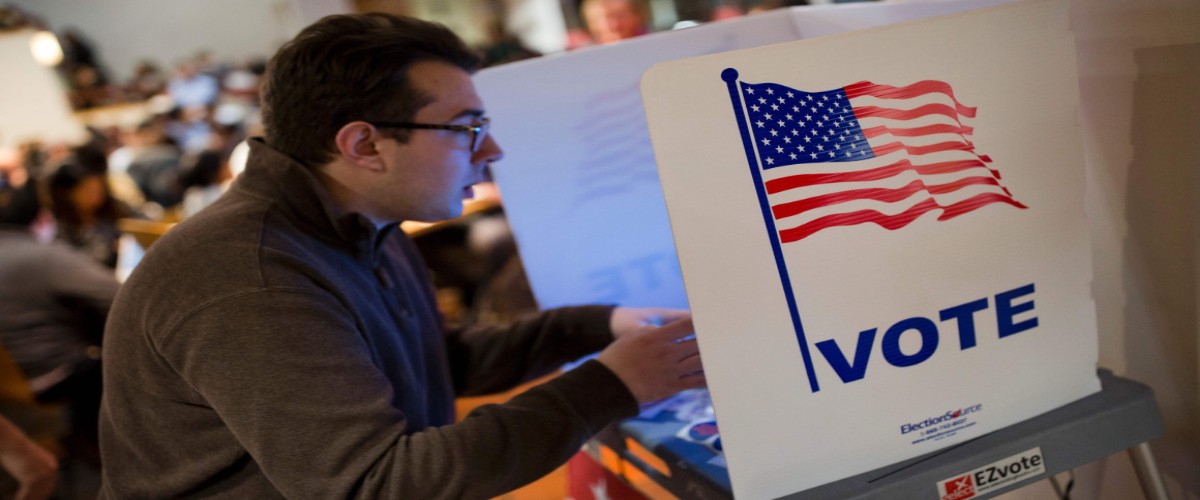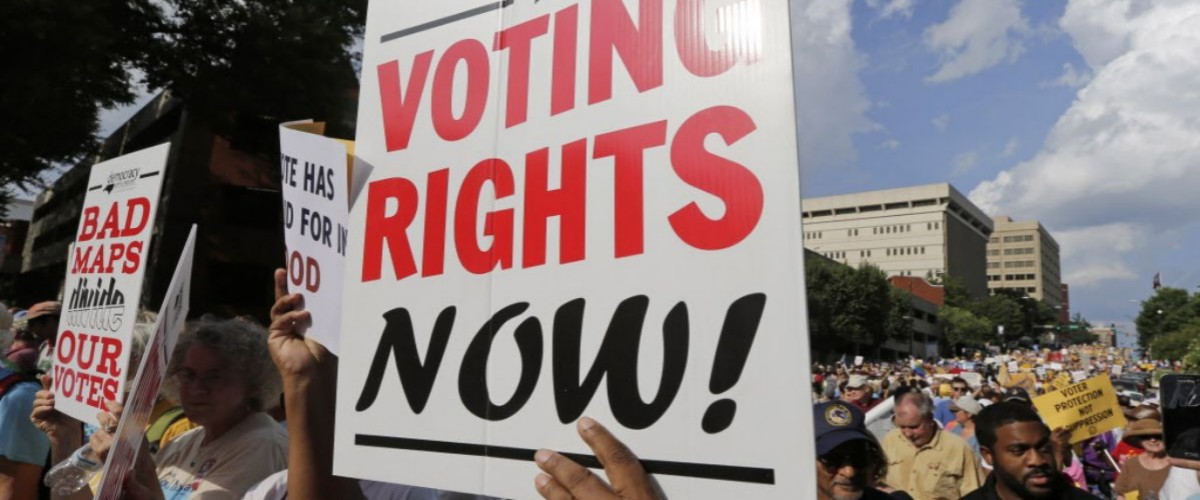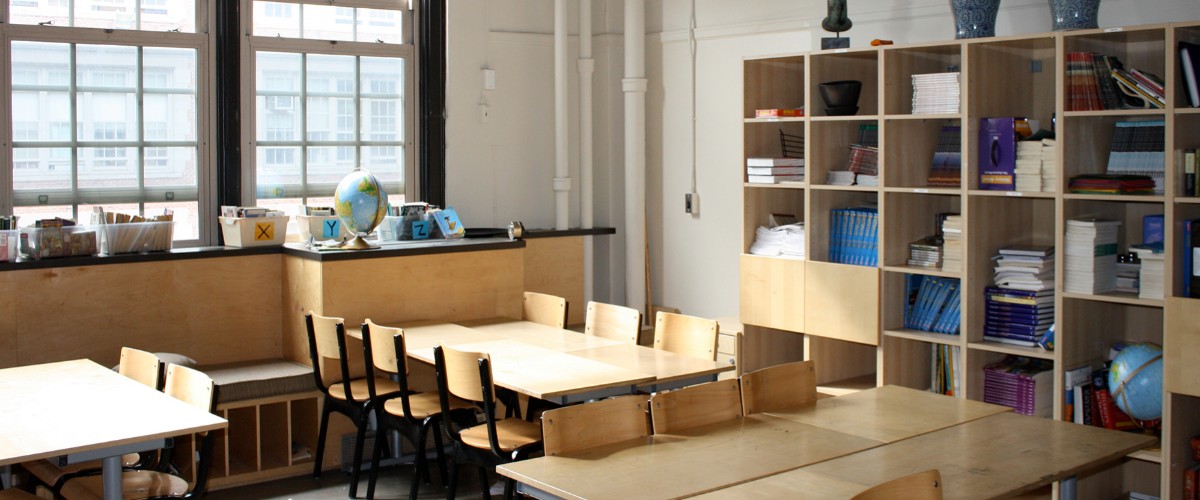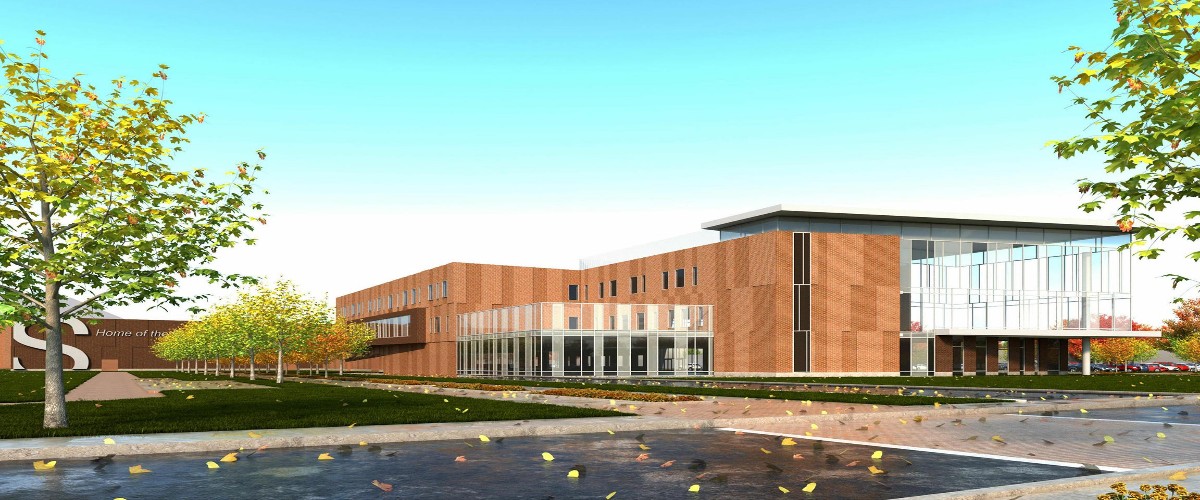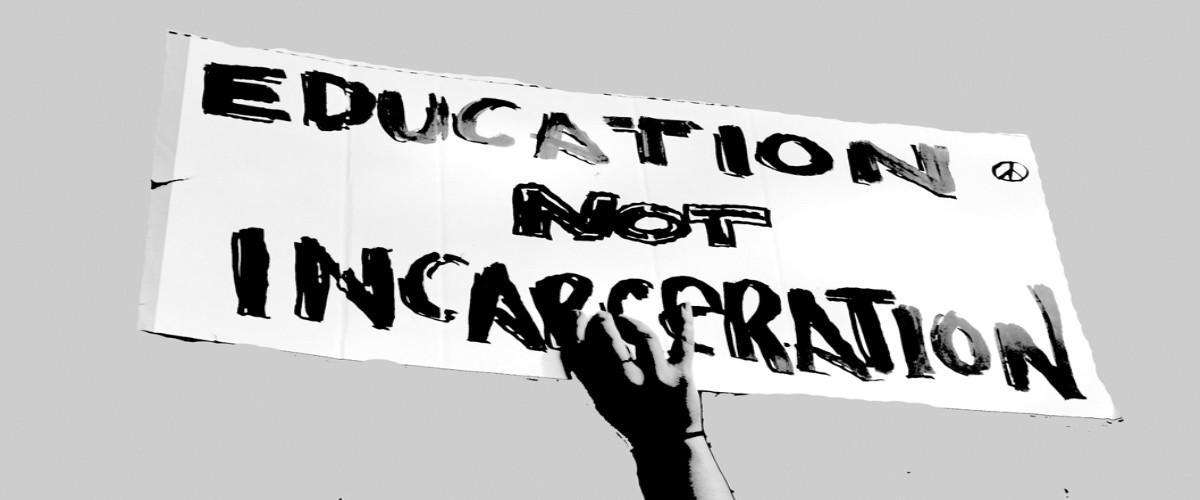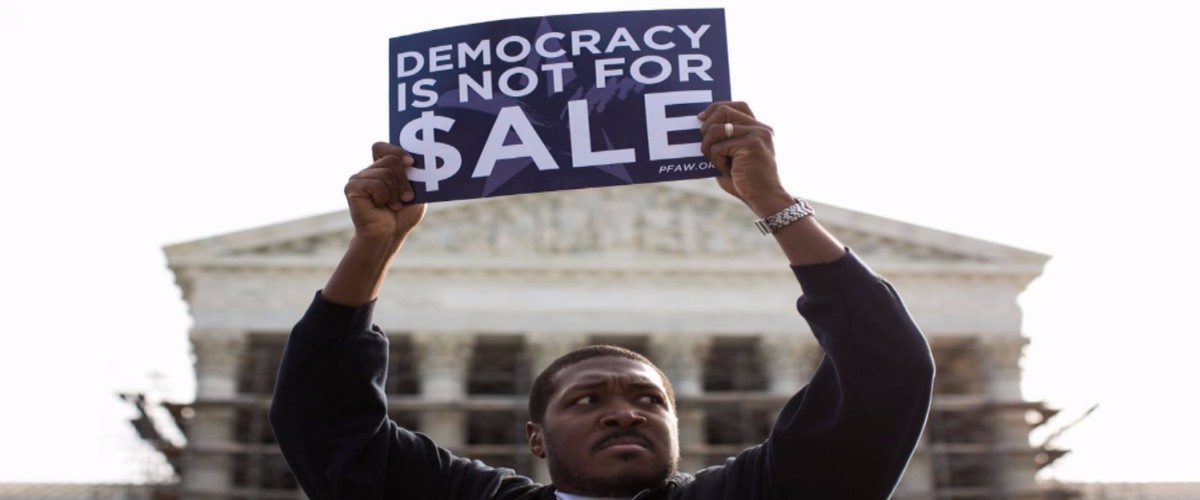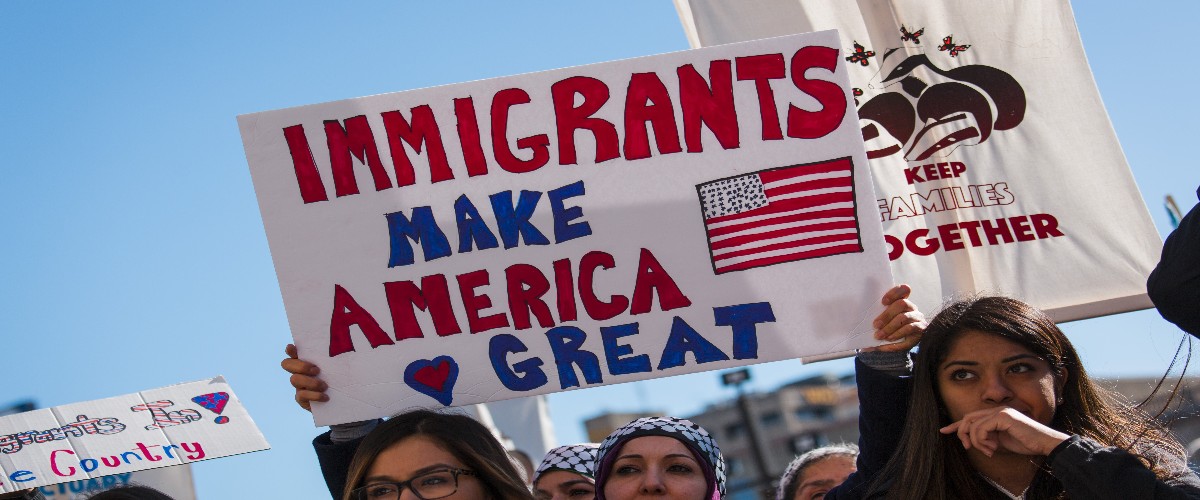Dear Resident,
Unfortunately, we have reached a point of extreme polarization in our country! On issues of race, gun control, income inequality, criminal justice, and school safety, the federal government and the Republican Congress is incapable of making any actual change. Despite the stagnation at the federal level, this year, I was proud to lead the fight in Maryland to impact several critical national issues that Congress and the federal government have refused to address.
The federal government has not acted on student debt and college access for years. I started an initiative two years ago to make Prince George’s Community College tuition-free. Last year, we received $1.7 million for a Promise Scholarship Program at PGCC, and now, 500 students will attend community college for free. Additionally, this year, I sponsored legislation to initiate a $15 million statewide “Maryland Promise Scholarship Program” that will make community college free for all low-and-middle income students & families in Maryland.
Having safe schools is a RIGHT that all of our students & teachers deserve. However, Congress again has failed to hear the pleas for stronger gun control laws. Throughout my tenure, I have voted for numerous common-sense gun control laws to keep students & communities safe, including a ban on bump stocks – the device used in the Las Vegas mass shooting, and allowing law enforcement to confiscate guns from domestic abusers and any person considered a danger to themselves or others.
Finally, over the past seven years, federal funding for affordable housing and community development has dropped by 8.4%. Again, when Congress does not act, I have. Last year, I established the National Capital Economic Development Fund to revitalize commercial and residential properties within the Capital Beltway. I am excited to report that this year’s budget includes a $1 million allocation to this program. This investment will have a direct impact on several communities in our District that deserve quality, affordable economic development.
I encourage you to read further as you will find updates on the budget, education reforms & investments, the MAGLEV train, tax relief and more. For more information, please contact me directly.
ON THE NOVEMBER 2018 GENERAL ELECTION BALLOT
Expanding Voter Access – Same-Day Voter Registration
I want to ensure that you are aware of two issues that will appear on the ballot this year. As Chair of the Election Law Subcommittee, I led efforts to make Maryland the 18th state in the country to implement same-day voter registration to expand access to voting so that 500,000 unregistered voters will vote in our elections.
Protecting Public Education Funds
Unfortunately, politicians lied to you about how lottery & casino revenue would be used when casinos were approved several years ago. This year, I voted to create a “lockbox” for education funding. This legislation will ensure that by 2022 over $500 million in gaming revenue will be used to fund public education.
YOUR TAX DOLLARS AT WORK!
The Maryland State Budget – Prioritizing Education Investments
As your legislator, my top priority is to fully fund Prince George’s County public schools. This year, I secured $1.1 billion in investments for our school system – the most of any county in the State. I also fought for $400 million in new school construction funding and $22.5 million to fund school safety & security initiatives.
As a member of the Kirwan Commission, I have also been working to revise Maryland’s school funding formulas, which are currently underfunding our schools by $2.9 billion. To reverse this trend, I sponsored legislation to allocate over $30 million to fund the Kirwan Commission’s initial recommendations, which include implementing universal Pre-K, providing more resources to at-risk students, increasing teacher salaries, and providing more college & career readiness services in our schools.
My Commitment to Prince George’s County
In addition to these critical investments, our budget allocated funds to continue economic development projects for Prince George’s County and District 22, including:
- Restored $29 Million to fund the Prince George’s County Regional Medical Center;
- $31 Million to fund Prince George’s Community College;
- Restored $38 Million in Highway User Revenues to fund road maintenance in our municipalities;
- $1 Million to incentivize inside the beltway economic development projects;
- $250,000 for college access programs at Parkdale & Duval High School;
- $75,000 to renovate the Lanham Boys & Girls Club Sports Park;
- $75,000 to construct the Greenbelt Station Hiker & Biker Trail; and
- $300,000 to develop a signature public gathering space at the Armory Plaza in Hyattsville.
RESISTING THE MAGLEV TRAIN
Supporting the “No Build” Option
This year, I sent a letter to Congressman Hoyer to ask for his official position on the proposed MAGLEV train after he declined to take a position at a public meeting in Annapolis. I requested his position because the MAGLEV will likely rely on federal grants or loans should it be approved for construction. Again, when our federal officials refuse to act on an important issue to our District, I have. This year, I supported a series of bills to ensure that no State funds or State land go to the MAGLEV project. My position on this issue is simple – I stand with the hundreds of residents in our District who oppose the MAGLEV project and support the “No Build” Option!
TAX BREAKS FOR YOU & YOUR FAMILY
Restoring Personal Exemptions & Increasing Standard Deductions
In December 2017, the Republican led Congress passed a massive tax overhaul that cut taxes for the wealthiest individuals and corporations at the expense of 700,00 low-and-middle class families in Maryland. Specifically, the federal tax bill eliminates the personal exemptions Maryland taxpayers can claim for dependent family members. Because of legislation I voted for to allow families to continue to claim personal exemptions on their State taxes, we will save Maryland taxpayers over $800 million a year.
I also voted for legislation to provide low and middle class taxpayers with a $90 million tax break by increasing Maryland’s standard deductions for single filers to $2,250 and for joint filers to $4,500. This increase will provide tax relief for over 1 million taxpayers who take the State standard deduction and make tax filing simpler.
Tax Relief for Low-Wage Workers & Military Retirees
This year, I was proud to vote for a series of initiatives that will provide tax relief for low-and-middle income Marylanders who are working to escape the cycle of poverty. First, I voted to expand the Earned Income Tax Credit (EITC) to childless adults, which will provide $7.5 million in tax relief to Marylander’s struggling to get by on low wages.
Finally, I strongly supported legislation to expand the retirement income subtraction modification from $10,000 to $15,000 for and provide an additional $6 million per year of tax relief to Maryland military veterans and retirees. The legislation also expands the existing State subtraction modification for retired law enforcement, fire, rescue, and emergency services personnel to retired correctional officers.
DELEGATE WASHINGTON’S LEGISLATIVE AGENDA
Improving Transparency & Accountability in Our Public School System
Establishing an Independent Inspector General for PGCPS
Over the past three years, I have proposed legislation to improve transparency & accountability in our school system by establishing an independent Inspector General to investigate allegations of waste, fraud, and abuse. Following decades of systemic mismanagement of funds, numerous unaddressed audit findings, and the recent findings of grade changes and inflated graduation rates, this legislation is necessary to restore a sense of public trust in our schools. An independent Inspector General will ensure education funding – which totaled $1.9 billion in Prince George’s County last year – is spent efficiently and performance standards are measured accurately.
Reforming School Discipline
Ending the School-to-Prison Pipeline
According to a report from the State Department of Education, 588 students were arrested at Prince George’s County Schools in the 2015-2016 and African Americans make up 65% of the total arrests in Maryland public schools. Unfortunately, this data was presented as a “data dump” with no ability for analysis. To reform how data is reported on student discipline data, I sponsored legislation to require this data is disaggregated by race, ethnicity, gender, FARM eligibility, disability status, and English language proficiency. These data requirements will encourage accountability of the school disciplinary actions as we work to eliminate the school-to-prison pipeline.
This year, I also voted to provide $22.5 million to fund and improve new school safety standards. Most importantly, this bill incorporates legislation that I proposed to ensure that all school resource officers and school security personnel are adequately trained to protect our students, de-escalate violent situations, and promote a positive school climate.
Increasing Access to Affordable Housing
Incentivizing Affordable Housing – Glenn Dale Hospital Site
Right now, Maryland needs 119,000 new units of affordable housing just to meet existing demand while Prince George’s County only has 34.3 adequate and affordable rental housing units available for every 100 low-income renters. This year, I passed legislation to address the affordable housing gap in both the State and Prince George’s County by expanding the historic tax credit to fund the reuse of historic structures to create new affordable housing opportunities. This legislation will also help revitalize the Glenn Dale Hospital site.
FIXING OUR METRO SYSTEM
Dedicating $167 Million in Funding to Metro
Our Metro system is broken – from delayed maintenance repairs and upgrades to constantly late trains, we all know of the problems that have plagued Metro for decades. This year, I was proud to vote for critical legislation to provide desperately needed, long-term capital funding to the Metro system. By providing $167 million annually in funding to Metro, Maryland joins Virginia and D.C. to ensure that Metro can make the essential system improvements it needs to provide sustainable and reliable service.
PRESERVING MARYLAND’S HEALTH CARE SYSTEM
Stabilizing Health Insurance Costs
Due to sharply rising costs and shrinking enrollment, Maryland’s Health Care Exchange was on the verge of collapse. To stabilize our Health Care market and insurance rates, I voted for legislation this year that will create a reinsurance program to help insurers cover high-risk patients. I also supported legislation to direct $380 million that health insurance companies no longer have to pay in federal taxes to keep health care rates lower next year.
PROTECTING OUR ENVIRONMENT
Ensuring Maryland’s Membership in the Regional Greenhouse Gas Initiative and the U.S. Climate Alliance
This year, I voted for a series of bills to ensure that the Governor to cannot withdraw the State from the Regional Greenhouse Gas Initiative or the U.S. Climate Alliance. Following the Federal Administration’s announcement that the U.S. would withdraw from the Paris Climate Agreement, these bills are essential to demonstrate Maryland’s commitment to reducing greenhouse gas emissions in our State and worldwide.
PROTECTING OUR DEMOCRACY FROM FOREIGN INTERFERENCE
Regulating Online Political Ads on Facebook & Online Platforms
In the 2016 election, Russians attempted to hack Maryland’s voter registration system. While the federal government refused to protect our elections, I led the effort to address the cybersecurity vulnerabilities in Maryland’s election systems. I sponsored and passed legislation to make Maryland one of the first state’s in the country to require online platforms – such as Facebook, Twitter, and Google – to retain and disclose information on online political ads. In 2016, Maryland was specifically targeted by 262 online political ads funded by the Russians. My legislation will send a clear message that we will not tolerate attempts by foreign governments to manipulate our democracy and interfere in our elections.
Election Cybersecurity Protections
Unfortunately, State lawmakers and the public were not informed of above referenced interference in our elections until seven months after it occurred. Because of legislation I proposed, lawmakers and the public will immediately be informed of any “security incident” involving the State’s election systems. My legislation also protects the privacy of online ballots and ensures that hard records are maintained if hackers attempt to alter the online voter registration records.
Wrapping It Up
Thank you for reading my 2018 Legislative Update! To read more about my legislative accomplishments, other initiatives, and community events in District 22, as well as sign up for my newsletter, visit my website at www.AlonzoWashington.com You can also follow me on Twitter @DelegateATW and friend request me at facebook.com/DelegateWashington.
Please do not hesitate to contact my office directly with any questions or concerns you may have this year. Don’t forget that you are always invited to join me at my monthly “Table Talk Tour” events around District 22! Subscribe to my newsletter for the next event. I am excited to get back out into your neighborhood to hear from you about how we can improve our Municipalities, County and State.
I look forward to seeing you around the community, and I thank you for the opportunity to serve you!
Sincerely,
-Alonzo
Alonzo T. Washington
Maryland State Delegate



